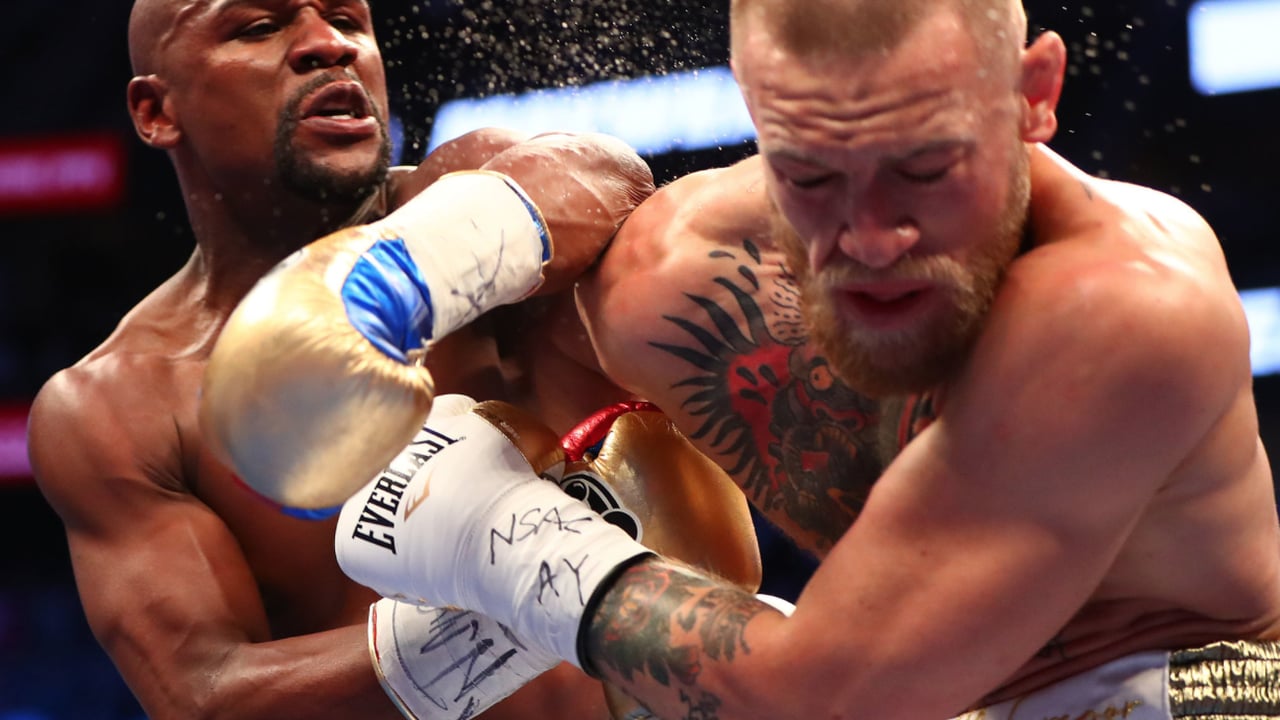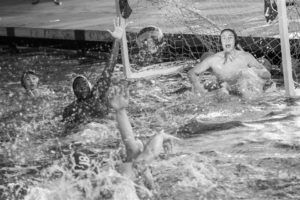Co-written by Avinash Ganesh ’18 and Joe Woldemichael ’19

photo courtesy of Vimeo
Almost everyone has an opinion about the boxer Floyd Mayweather: the undefeated champion, the loudmouthed upstart, the wife-beating criminal. Born to a boxing family who lived in a poor neighborhood on the outskirts of New Jersey, Mayweather grew up impoverished in a complex and dysfunctional home. When Mayweather was still an infant, a fight broke out between his father, Floyd Mayweather Sr., and uncle, Tony “Baboon” Sinclair. A few hours later, at the Mayweather home, Baboon assaulted Mayweather Sr. with a shotgun and held him at gunpoint. Mayweather Sr. grabbed his infant son and held him in front of him like a human shield – “[My wife] was pulling the baby out of my arms so her brother could shoot me,” recalled Mayweather. “But I wasn’t going to put that baby down. I didn’t want to die… I knew he wouldn’t shoot the baby. So he took the gun off my face, lowered it to my leg and bam!” Mayweather Sr. was taken to the hospital for treatment and his son’s life changed forever. With much of his left leg decimated by buckshot, Mayweather Sr. could no longer fight at the same level that he had prior to the injury. Though it would be seven more years before he exited the ring for the final time, Mayweather Sr.’s ability as a boxer was significantly diminished and the family began to struggle financially.
“People don’t know the hell I’ve been through,” said Mayweather Jr., recalling his childhood. Growing up, two things remained constants in Mayweather’s life: drugs and boxing. His father only spent time with Mayweather in the boxing ring, and even then was only sporadically a presence in his son’s life. The elder Mayweather became involved in the drug trade, further complicating the Mayweathers’ family life. When talking about his childhood, Mayweather was blunt: “I had a father who was a hustler and a mother who was on drugs. I was the man in the house from sixteen. That’s just the way it was.”
With his father increasingly absent from the home, Mayweather Jr. often relied on his grandmother for support. She was the first to see her grandson’s true potential as a boxer, pushing him to achieve great things from an early age. “I basically raised myself,” said Mayweather, “My grandmother did what she could.”
Mayweather’s first major success came in 1993, at the National Golden Gloves championships, which he won at the age of only sixteen. His father was absent from his celebrations, however. Mayweather Sr. had been imprisoned on a drug felony earlier the same year. Mayweather Jr. won the championship again in 1994, and then for a third time in 1996. At the 1996 Atlanta Olympics, Mayweather stormed his way to the later stages, meeting Bulgarian Serafim Todorov at the semifinal stage. After a grueling fight, with points awarded both ways, the referee finally raised an exhausted Mayweather’s hand when the final bell rang. A few minutes later, a stunned Mayweather was escorted to his dressing room in confusion — in a controversial decision, the bout had gone to Todorov, and Mayweather ultimately left with a bronze medal. He would never participate in the Olympics competition again.
After winning his first professional bout in 1996, Mayweather quickly grew to national fame. Two years after his professional debut, Mayweather became the featherweight world champion. His greatest early triumph came against the undefeated Diego Corrales, who was considered by most to be the best featherweight boxer in the world, but had been convicted months earlier for assaulting his pregnant wife. “I’m doing it for all the battered women across America,” announced Mayweather. “Just like he beat that woman, I’m going to beat him.” Mayweather’s proclamation proved true; he won by a unanimous decision and cemented his place as the world’s best. The start to Mayweather’s career was perfect; he was winning match after match and his reputation was soaring.
In 2002, Mayweather’s reputation took a major blow after he was arrested for allegedly assaulting two women at his Los Angeles home. Although the charges were dismissed, he was arrested again for similar charges in 2006 —his one-year jail sentence was ultimately suspended and he was simply ordered to pay $1000 and undergo psychiatric counseling. Mayweather’s fights grew ever more lucrative, but his reputation would never recover. At home, Mayweather’s relationship with his father broke apart, and Mayweather Sr. agreed to train his son’s rival, Oscar De La Hoya, in anticipation of their fight. In 2007, when the De La Hoya-Mayweather bout finally took place, it shattered every financial record in the history of the sport. However, there was one crucial difference: Mayweather, rather than being adulated as he typically had been, had become reviled by the public, and was booed during press tours across the country. For the first time, millions tuned in not to see the young Mayweather win, but see the upstart champion lose his undefeated sheen. Inevitably though, when Mayweather took De La Hoya’s championship belt in a split decision, there could be little question about his total domination over the boxing landscape.
In 2010, with much of the past three years having been spent in an early retirement, Floyd Mayweather was arrested for beating his ex-girlfriend, allegedly in front of their children. He was sentenced to 90 days in jail but was released after 60 days. In the report, Mayweather’s ex-girlfriend Josie Harris told the police that when she woke up she saw Mayweather reading her text messages, which revealed her relationship with another man. As a result, Mayweather struck her in the back and left her with bruises and contusions on her body. “I was powerless,” said Harris. “He was holding me down. I couldn’t fight back. The kids were screaming and crying.” Though he plead guilty, Mayweather still denies the charges, claiming he was only restraining his partner after a drug binge. In the eyes of much of the public, though, Mayweather’s final crime was unforgivable.
Despite having never lost a fight, and having enjoyed arguably the most successful boxing career in history, Mayweather was rarely compared to Muhammad Ali, Sugar Ray Robinson, and the pantheon of boxing greats. Throughout the press conferences and media coverage that heralded his final fight against Conor McGregor, Mayweather was jeered at every arena and plaza he set foot in. When the final bell of his last bout rang and Mayweather’s hand was inevitably raised, the crowd remembered not his successes in the ring, but his failures outside of the arena.






